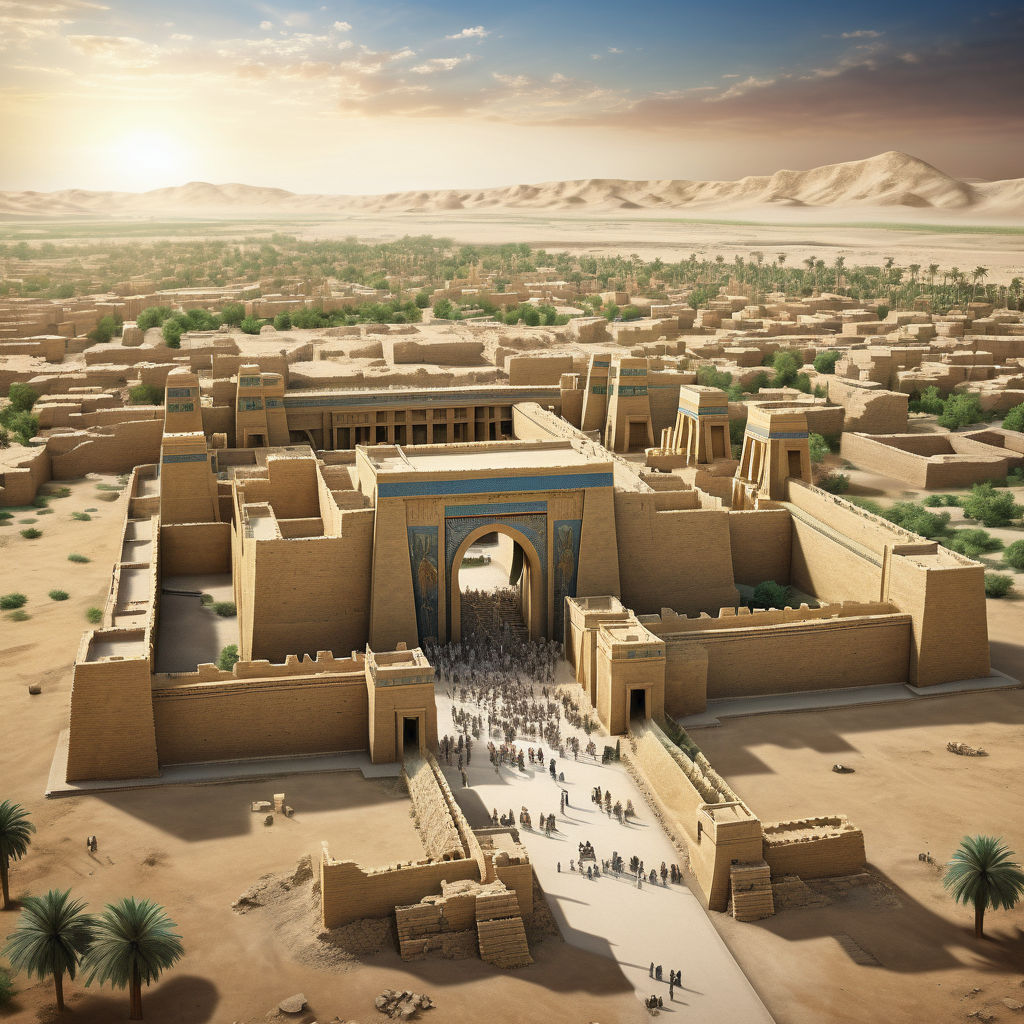Discover Iraq: A Blend of Ancient Heritage and Modern Engagement
Exploring Iraq’s Rich Cultural Legacy, Social Dynamics, and Cross-cultural Engagement

Introduction to Iraq
Iraq, officially known as the Republic of Iraq, is located in the Middle East. It shares borders with Turkey to the north, Iran to the east, Kuwait to the southeast, Saudi Arabia to the south, Jordan to the southwest, and Syria to the west. Major cities include Baghdad (the capital), Mosul, Basra, and Erbil. Iraq boasts a rich cultural heritage, being home to ancient Mesopotamian civilizations such as Sumer, Akkad, Babylon, and Assyria. This historical significance is reflected in its archaeological sites, literature, music, and art. Despite contemporary challenges, Iraq remains a nation with a deep cultural legacy and diverse ethnic composition, including Arabs, Kurds, Turkmen, and Assyrians.
Cross-national and Cross-cultural Understanding
Iraqis generally perceive and engage with other cultures with a blend of curiosity and caution, shaped by their historical experiences and recent geopolitical challenges. The country’s history as a cradle of civilization and a crossroads of various cultures has fostered an inherent appreciation for cultural diversity. Despite recent conflicts, there is a strong desire among many Iraqis to re-engage with the global community. Significant cultural exchanges and educational programs highlight Iraq’s efforts to foster global engagement. Institutions such as the Iraqi National Library and Archives and the University of Baghdad promote Iraqi culture internationally through events, exhibitions, and academic collaborations. Additionally, various non-governmental organizations and international bodies support cultural preservation and exchange programs, fostering mutual understanding. International partnerships also enhance cross-cultural understanding. Iraq is a member of international organizations such as the United Nations, the Arab League, and the Organization of Islamic Cooperation, promoting cultural cooperation and exchange. These partnerships facilitate student exchanges, collaborative research projects, and cultural festivals, strengthening Iraq’s cultural ties with the world.
Interactions and Social Dynamics
Interactions between Iraqis and foreigners are typically characterized by hospitality, politeness, and a strong sense of respect. Iraqi social behaviors are influenced by cultural values such as "karam" (generosity), "ihtiram" (respect), and "tahamol" (patience). These values are often reflected in the way Iraqis engage with outsiders. Social behaviors in Iraq emphasize respect and politeness in initial interactions, often maintaining a level of formality. Greetings typically involve a handshake, and maintaining a respectful distance is common. Hospitality is a significant aspect of Iraqi culture, and guests are often treated with great care and generosity, frequently invited to share meals and participate in social gatherings. Communication styles in Iraq are generally direct yet polite. Iraqis value honesty and clarity in communication, often engaging in open and respectful discussions. Non-verbal communication, such as body language and facial expressions, plays a significant role in interactions, adding to the overall expressiveness of conversations. Language plays a crucial role in facilitating interactions. Arabic is the official language of Iraq, with Kurdish recognized as an official language in the Kurdistan Region. Additionally, many Iraqis speak English, particularly among the younger generation and in urban areas. Multilingualism is valued and encouraged, especially in educational and professional settings.
Views on Dating and Relationships
Dating and relationships between Iraqis and foreigners are becoming more common, particularly among younger generations and in urban areas. Iraqi society tends to be conservative about relationships, heavily influenced by cultural and religious norms. However, there is a growing openness towards cross-cultural relationships as opportunities for international exposure increase. In Iraqi dating culture, there is often a strong emphasis on family approval and social harmony. Relationships are typically pursued with a long-term perspective, and traditional gender roles can play a significant role. Men are often expected to be providers and protectors, while women are expected to be nurturing and supportive. Cultural expectations and traditions, such as the importance of family approval and adherence to religious practices, can impact relationships. Understanding and respecting these cultural norms is essential for successful cross-cultural relationships in Iraq.
Marriage and Family
Marrying foreigners is accepted in Iraq, though it comes with certain social and familial considerations. Legal considerations for such marriages involve specific regulations governed by Iraqi civil and Sharia law. Non-Muslim spouses are often encouraged to convert to Islam, which can be a significant consideration for cross-cultural marriages. Socially, Iraqi families may initially have reservations about cross-cultural marriages due to concerns about cultural differences and social compatibility. However, acceptance typically increases as relationships develop and families get to know the foreign partner. Family plays a central role in Iraqi culture, and marrying into an Iraqi family often involves participating in family gatherings and traditions. Common practices in cross-cultural marriages include celebrating both Iraqi and foreign traditions, creating a blended cultural environment. For example, a couple might celebrate Iraqi holidays like Eid al-Fitr and National Day alongside holidays from the foreign partner’s culture.